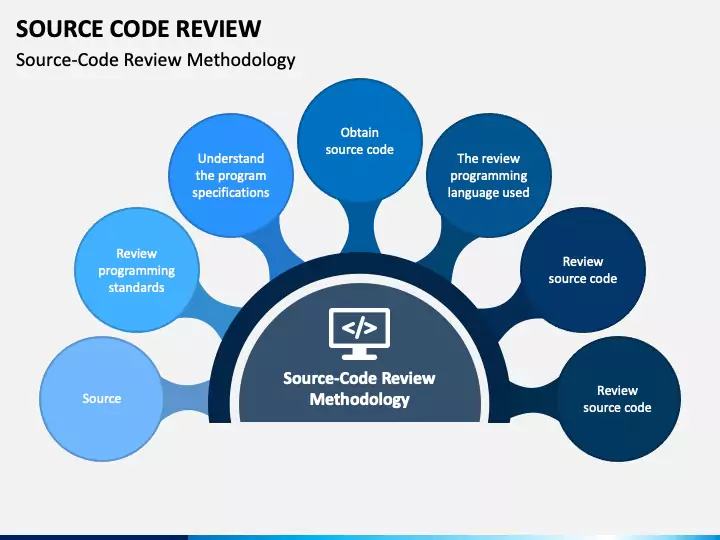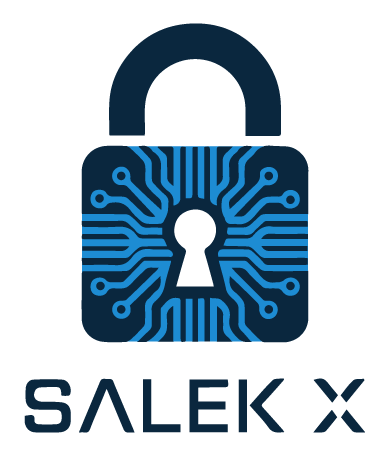Source Code Review Services
Source Code Review Services
Ensuring the security and reliability of your software applications is paramount in today’s digital landscape. Our Source Code Review Services involve a meticulous examination of your application’s source code to identify vulnerabilities, coding errors, and security flaws. By leveraging our expertise, you can enhance the quality of your software, protect against potential threats, and ensure compliance with industry standards. Whether you are developing a new application or maintaining an existing one, our comprehensive source code reviews provide the insights and recommendations necessary to optimize your codebase for performance and security.

A Source Code Review is a systematic examination of your application’s source code to identify and rectify vulnerabilities, coding errors, and security flaws that could compromise the functionality and security of your software. Our services help you ensure that your code adheres to best practices, industry standards, and regulatory requirements, ultimately leading to more secure, efficient, and maintainable applications.

Comprehensive Code Analysis:
- Automated Scanning: Utilize advanced automated tools to perform initial scans for common vulnerabilities and coding standards violations.
- Manual Inspection: Conduct thorough manual reviews by experienced security analysts to identify complex vulnerabilities that automated tools may miss.
Vulnerability Identification:
- Security Flaws Detection: Identify critical security issues such as SQL injection, cross-site scripting (XSS), buffer overflows, and insecure authentication mechanisms.
- Coding Errors: Detect syntax errors, logical flaws, and performance bottlenecks that could affect the reliability and efficiency of your application.
Compliance Assurance:
- Industry Standards Alignment: Ensure your code complies with industry standards and regulations such as OWASP, ISO/IEC 27001, GDPR, and HIPAA.
- Best Practices Implementation: Promote the adoption of secure coding practices and design principles to enhance overall code quality.
Detailed Reporting:
- Comprehensive Reports: Provide detailed reports outlining identified vulnerabilities, coding errors, and recommended remediation actions.
- Prioritization of Issues: Classify and prioritize issues based on their severity and potential impact on your application.
Remediation Support:
- Guidance and Recommendations: Offer actionable recommendations and best practices to address identified issues effectively.
- Collaborative Fixes: Work closely with your development team to implement fixes and verify their effectiveness through subsequent reviews.
Continuous Improvement:
- Code Quality Metrics: Track and measure code quality metrics to monitor improvements over time.
- Ongoing Reviews: Provide ongoing source code review services to ensure continuous adherence to security and quality standards.
Integration with Development Processes:
- CI/CD Pipeline Integration: Seamlessly integrate source code reviews into your Continuous Integration/Continuous Deployment (CI/CD) pipelines for automated and continuous monitoring.
- Developer Training: Educate your development team on secure coding practices and the importance of code reviews in maintaining code integrity.

Enhanced Security:
- Proactive Threat Mitigation: Identify and address security vulnerabilities before they can be exploited by malicious actors.
- Reduced Risk of Data Breaches: Strengthen your application’s defenses against data breaches and cyberattacks.
Improved Code Quality:
- Reliability and Stability: Ensure your application is free from critical errors and performs reliably under various conditions.
- Maintainability: Promote clean, well-documented code that is easier to maintain and extend in the future.
Regulatory Compliance:
- Avoid Penalties: Ensure compliance with relevant data protection and information security regulations, avoiding costly fines and legal repercussions.
- Industry Recognition: Achieve and maintain certifications that demonstrate your commitment to security and quality.
Cost Efficiency:
- Reduced Remediation Costs: Addressing vulnerabilities early in the development lifecycle is more cost-effective than fixing issues post-deployment.
- Minimized Downtime: Prevent application failures and downtime caused by unresolved coding errors and security flaws.
Increased Customer Trust:
- Build Credibility: Demonstrate your dedication to delivering secure and reliable applications, fostering trust with your customers and stakeholders.
- Competitive Advantage: Differentiate your products in the market by showcasing superior security and quality standards.
Operational Efficiency:
- Streamlined Development Processes: Integrate code reviews into your development workflow to enhance collaboration and efficiency.
- Continuous Improvement: Utilize feedback from code reviews to drive ongoing improvements in your development practices and processes.
Use Cases:
Application Development:
- Ensure the security and reliability of new applications during the development phase, reducing the risk of vulnerabilities in production.
Legacy Systems Modernization:
- Review and update the source code of legacy applications to enhance security, performance, and maintainability.
Regulatory Compliance:
- Achieve compliance with industry-specific regulations by conducting thorough source code reviews and implementing necessary security controls.
Penetration Testing Support:
- Complement penetration testing efforts by identifying and addressing vulnerabilities through source code analysis.
Quality Assurance:
- Enhance your quality assurance processes by integrating source code reviews to catch issues early and improve overall software quality.
Third-Party Software Evaluation:
- Assess the security and quality of third-party software components integrated into your applications, ensuring they meet your security standards.
